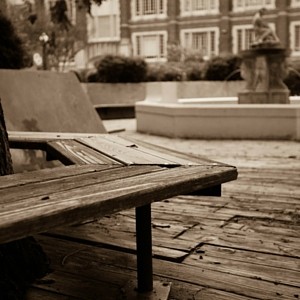The new building together with Nielsen Hall will comprise a new physics complex.
The resources are being made possible through major gifts from the Avenir Foundation, and Chun C. Lin, who served on the OU physics faculty from 1955 to 1968. In appreciation of the gifts, Boren recommended that the OU Board of Regents recognize Homer L. Dodge, who served as chair of the OU physics department from 1919 until 1944, by naming the physics complex “The Dodge Physics Complex,” and Professor Chun Lin by naming the new academic building “Lin Hall.”
“We are extremely grateful to the Avenir Foundation and to Chun Lin for these generous gifts, which will largely fund the new addition to our Physics building,” Boren said. “These gifts are even more appreciated in these tough economic times,” he said.
The new academic building will feature modular design for maximum flexibility in the more than 18,000 square feet of research laboratory space as well as office space for faculty and graduate students and an astronomy observatory on the roof. The laboratories will have advanced temperature control, vibration and acoustic isolation, and electromagnetic shielding in addition to providing critically needed space.
The building will be located south of Nielsen Hall, the current home of the physics and astronomy department. Construction of the new physics building will begin in the fall on the site now occupied by Gittinger Hall. The laboratory spaces in the building will undergo extensive testing for various certifications. The building is expected to be completed by spring of 2019.
Chun Chia Lin, a former University of Oklahoma faculty member and current chair of the OU Department of Physics and Astronomy Board of Visitors, is a noted research physicist and distinguished faculty member who has led one of the world’s foremost groups of physicists studying atomic collisions. His studies have increased the world’s understanding of the basic nature of the atomic and molecular process in ionized gases.
Professor Lin, who now serves as the John and Abigail Van Vleck Professor of Physics at the University of Wisconsin-Madison, is a consummate teacher who has provided educational supervision for more than 48 Ph.D. candidates, many of whom went on to achieve prominent positions within the field.
Professor Lin earned his undergraduate degree at the University of California-Berkeley and his doctorate from Harvard in 1955, the same year he joined OU as an assistant professor in physics. While at OU, he helped initiate a seminal program on electron excitation of atoms.
He has served as the chairman of the Gaseous Electronics Conference and chair of the Division of Atomic, Molecular and Optical Physics of the American Physical Society. In 1996, the American Physical Society honored Lin with the Will Allis Prize for his contributions to the study of ionized gases. He is a Fellow of the American Physical Society and a former Alfred P. Sloane Foundation Fellow. Lin received an honorary degree from OU in 2015.
The Homer L. Dodge Department of Physics and Astronomy offers degree programs in physics, astrophysics and engineering physics at the bachelor’s, master’s and doctoral level. Since 1909, the department has had a tradition of educating scientists, engineers and teachers who have distinguished themselves as leaders in industry and academia. Graduates include a former Science Advisor to the President of the United States, who was previously director of National Science Foundation; one president of a state university; one U.S. ambassador; five founders of corporations; one famous Artic explorer; the founder and first editor of the American Journal of Physics; seven research laboratory managers; one Rhodes Scholar; two Guggenheim Fellows; among more than 500 other graduates devoted to advancing knowledge and improving quality of life.



